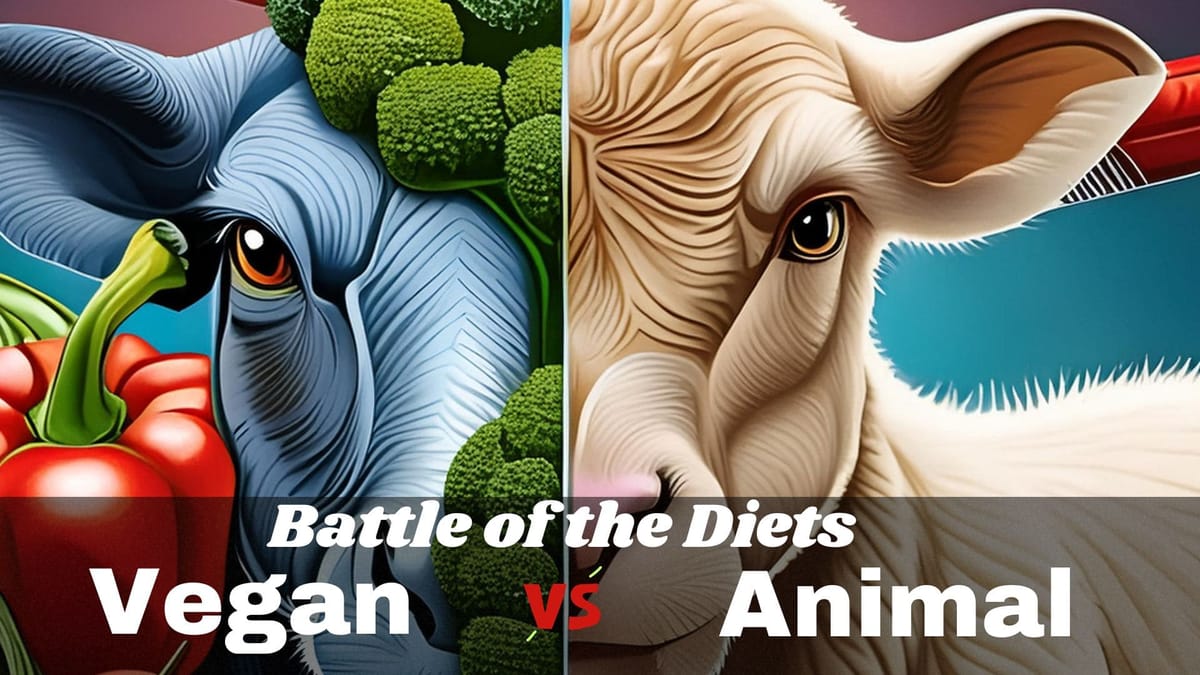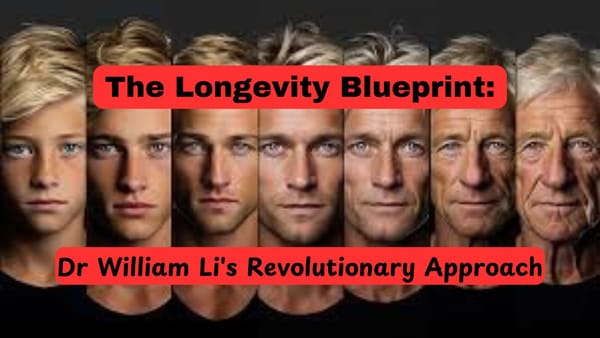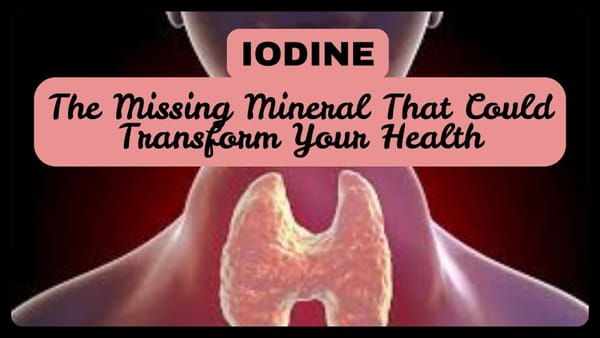The Battle for Brain Health: Vegan vs Animal Diets in the Spotlight
There is evidence that unsupplemented vegan diets are incompatible with optimal cellular function with risks of malnutrition & brain impairment.

Is Your Diet Healthy for your Brain?
When it comes to diet, heart health, blood sugar, and cancer risk often take centre stage. But how do our dietary choices impact our brains and mental health? This is an area nutritional psychiatrist Dr. Georgia Ede has extensively researched.
In her 20s and 30s, Dr. Ede followed the conventional guidance of a low-fat, plant-based diet. However, by her early 40s she developed a host of mysterious symptoms like chronic fatigue, fibromyalgia, IBS, and migraines. Surprisingly, switching to a high-cholesterol, high-fat diet rich in animal foods completely resolved these issues.
While official bodies promote plant-rich, low animal-product diets, Dr. Ede believes the full picture is more nuanced. She aims to provide balanced insight to help people optimize their chosen dietary approach, be it vegan or omnivorous.
The Vegan Perspective
Vegan diets, devoid of all animal products, are naturally cholesterol-free and low in saturated fat. An increasing number of influential voices advocate these diets for improved health. USDA and WHO actively promote plant-forward eating patterns.

However, unsupplemented vegan diets indisputably lack certain essential nutrients. This alone should give one pause about relying solely on vegan whole foods. The USDA diet recommends fortified refined grains and cereals since strictly plant-based diets can be nutrient deficient!
Potential Downsides of Vegan Diets
Eliminating animal sources makes it challenging to obtain adequate vitamin B12, iron, zinc, omega-3 fatty acids, and other key nutrients for brain health. Over time, such deficiencies could contribute to neurological and cognitive dysfunction.
The evidence suggests that unsupplemented vegan diets are incompatible with optimal human cellular function. While individual effects may vary, they carry risks of general malnutrition and resultant brain impairment.
Not All Diets Are Created Equal
Simply categorizing diets as "vegan" or "omnivorous" overlooks the vast variation in food choices within each pattern. The quality and composition of those choices impact health as much or more than including or excluding animal products.
Some factors that can undermine vegan or omnivorous diets include:
- Refined carbohydrates and processed foods
- Excess intake of grains, beans, nuts and seeds high in anti-nutrients like lectins and phytates
- Imbalance of pro-inflammatory omega-6 to anti-inflammatory omega-3 fatty acids
- Sensitivity to dairy proteins like casein
- Pre-existing digestive disorders
Well-planned vegan diets devoid of processed foods and properly supplemented could potentially meet nutritional needs. Likewise, nutrient-dense omnivorous diets focusing on high-quality proteins, sufficient omega-3s, and avoiding refined carbs may support optimal brain function.

Finding Common Ground
All vegan diets are not alike, just as all omnivorous diets differ. Evaluating their true impacts requires closely examining the specific foods involved, not making broad generalized claims.
Dr. Ede has seen both vegan and omnivorous patients experience health improvements or declines depending on the quality of their diets, not just by including animal products. These anecdotes illustrate that good mental and physical health hinges on much more than just plant vs animal-based preferences.
Some key factors that influence outcomes on either diet include:
Refined carbohydrates are extremely unhealthy. As for mental health in particular, processed carbohydrates cause brain damage in at least three specific ways:
1. Hormonal instability: Refined carbohydrates put the brain and body on an invisible internal roller coaster.
2. Inflammation and oxidation: Most psychiatric disorders are now understood to be associated with increased markers of inflammation and oxidation in the bloodstream.
3. Insulin resistance of the brain: Insulin resistance (aka pre-diabetes) now affects more than 50% of Americans. Emerging evidence suggests that insulin resistance can contribute to symptoms of depression, bipolar disorder and psychosis, but the study of insulin resistance and psychiatric disorders is in its infancy.
However, when it comes to Alzheimer's Disease, it's another story.
Refined Carbohydrates - Avoiding sugars, flours, and other processed carbs reduces inflammation, hormone disruption, and insulin resistance - all drivers of brain dysfunction.
Grains/Legumes - These contain antinutrients like lectins and phytates that can contribute to leaky gut, impair mineral absorption, and promote inflammation for sensitive individuals.
Omega 3:6 Ratio - Most modern diets are severely imbalanced, containing up to 30x more inflammatory omega-6s than protective omega-3s from meat, eggs, and fish.
Dairy - The bovine hormones, proteins, and growth factors in dairy can trigger issues like digestive problems, acne, and hormonal imbalances in many people.
Recommended Read

Key Takeaways
While Dr. Ede believes some animal protein and fats are important for mental health, reasonable people may disagree. The evidence suggests both vegan and omnivorous diets can either support or undermine brain function depending on specific food choices.
Regardless of which path you choose, minimizing processed foods, balancing omega 3:6 ratio, and being mindful of potential food intolerances appears most crucial for cognitive wellness. With thoughtful, high-quality meal plans, either dietary pattern can potentially support neurological health.






